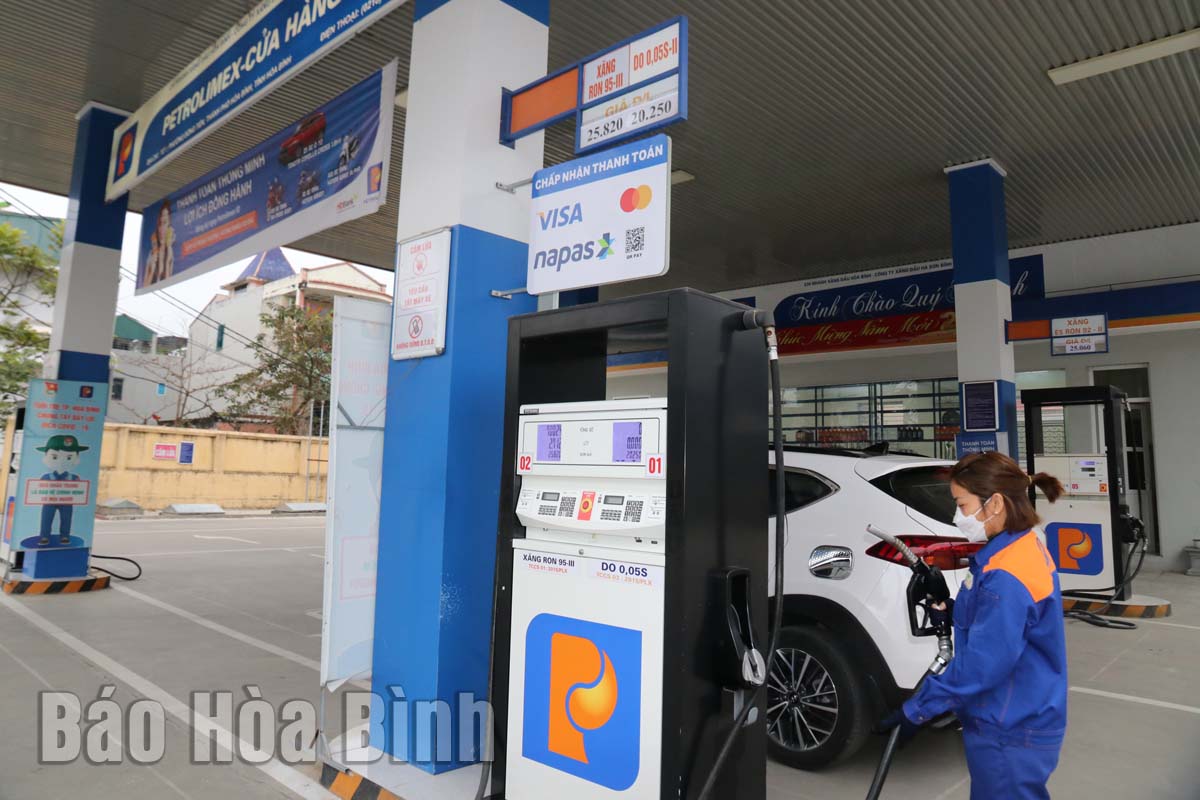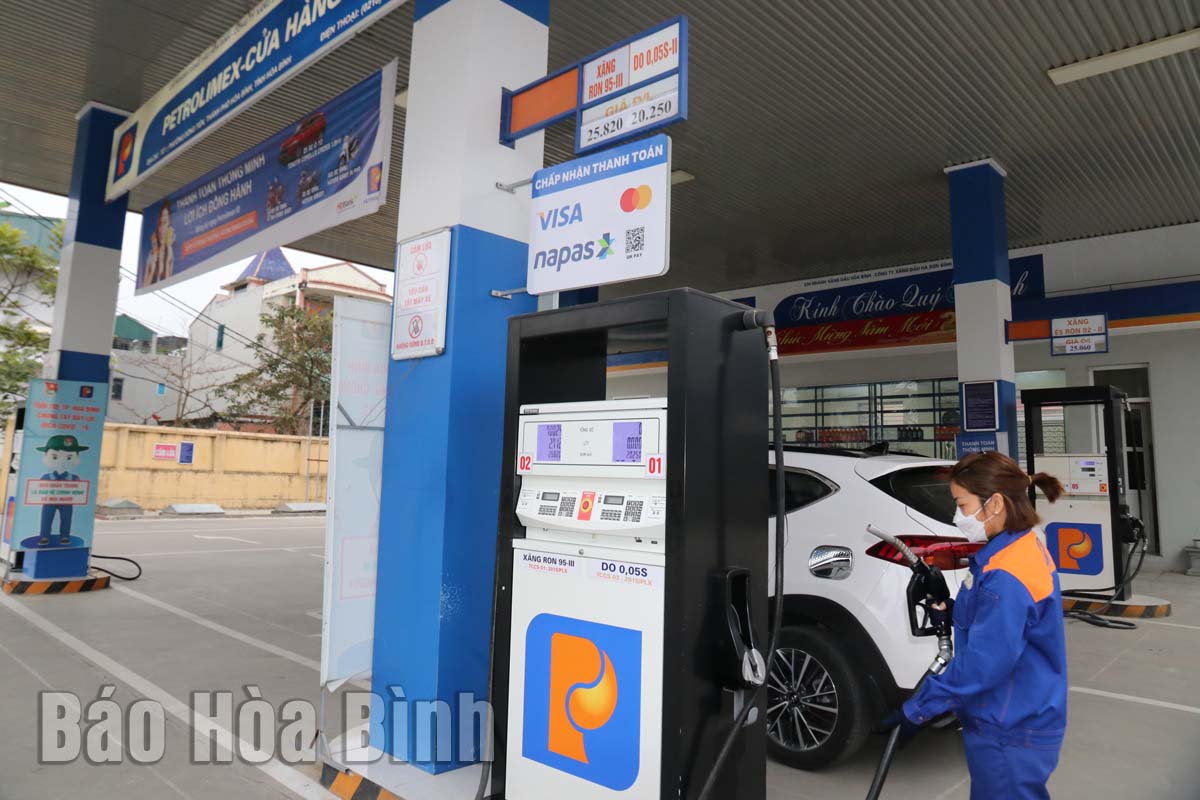
(HBO) – Authorities have reported a shortage of petrol supply in certain localities across the country recently. However, thanks to timely actions by relevant forces and the key businesses, fuel supply in Hoa Binh province has still been guaranteed.
A gas station of the Hoa Binh branch of the Vietnam National Petroleum Group (Petrolimex) on Cu Chinh Lan road in Dong Tien ward, Hoa Binh city, publicises new petrol prices.
From 3pm on February 11, petrol prices in Vietnam increased sharply to an eight-year high. Accordingly, prices of E5 RON 92 were raised by 980 VND per litre to the maximum of 24,570 VND per litre, RON 95 by 960 VND to 25,320 VND, diesel by 960 VND to 19,860 VND, kerosene by 960 VND to 18,750 VND, and mazut by 660 VND per kg to 17,650 VND per kg.
To prevent some gas stations from keeping fuel to wait for price hikes, which may lead to shortages, and to guarantee uninterrupted petrol supply for the local market, relevant forces from the province’s Department of Industry and Trade and market surveillance division have taken many measures, including setting up teams to examine fuel trading businesses.
Nguyen Ba Thuc, head of the market surveillance division, said the division issued Document No. 76/CQLTT-NVTH on January 31, 2022 to enhance management, carry out specific measures, make plans, and coordinate with relevant agencies to inspect fuel trading units so as to detect and deal with wrongdoings in a timely and stringent manner.
The Department of Industry and Trade also sent a document to the district-level People’s Committees, the market surveillance division, and fuel traders and distributors, asking them to ensure local gas stations’ timely and sufficient supply of all types of petrol for the market.
At present, there are 12 petrol distributing businesses with 178 outlets in Hoa Binh province. Among them, the Hoa Binh branch of Petrolimex holds the biggest market share, 50 - 55 percent. It is running 26 gas stations in all the 10 district-level localities in the province./.
According to data from the Hoa Binh Provincial Party Committee, the industrial production index for the first six months of 2025 is estimated to have increased by 20% compared to the same period last year. This marks the highest year-on-year growth rate for this period since 2020.
In the first six months of 2025, Hoa Binh province’s export turnover was estimated at 1.145 billion USD, marking an 18.11% increase compared to the same period in 2024. Import turnover was estimated at $ 804 million, a 17.15% increase, which helped the province maintain a positive trade balance.
The lives of the ethnic minority farmers in Tan Lac district have gradually improved thanks to the new directions in agricultural production. This is a testament to the collective strength fostered through the professional associations and groups implemented by various levels of the district’s Farmers’ Union.
With the motto the "product quality comes first,” after nearly one year of establishment and operation, Muong village’s Clean Food Agricultural and Commercial Cooperative, located in Cau Hamlet, Hung Son Commune (Kim Boi district), has launched reputable, high-quality agricultural products to the market that are well-received by consumers. The products such as Muong village’s pork sausage, salt-cured chicken, and salt-cured pork hocks have gradually carved out a place in the market and they are on the path to obtaining the OCOP certification.
In the past, the phrase "bumper harvest, rock-bottom prices" was a familiar refrain for Vietnamese farmers engaged in fragmented, small-scale agriculture. But today, a new spirit is emerging across rural areas of Hoa Binh province - one of collaboration, organisation, and collective economic models that provide a stable foundation for production.
Maintaining growing area codes and packing facility codes in accordance with regulations is a mandatory requirement for agricultural products to be eligible for export. Recently, the Department of Agriculture and Environment of Hoa Binh province has intensified technical supervision of designated farming areas and packing facilities to safeguard the "green passport" that enables its products to access international markets.



